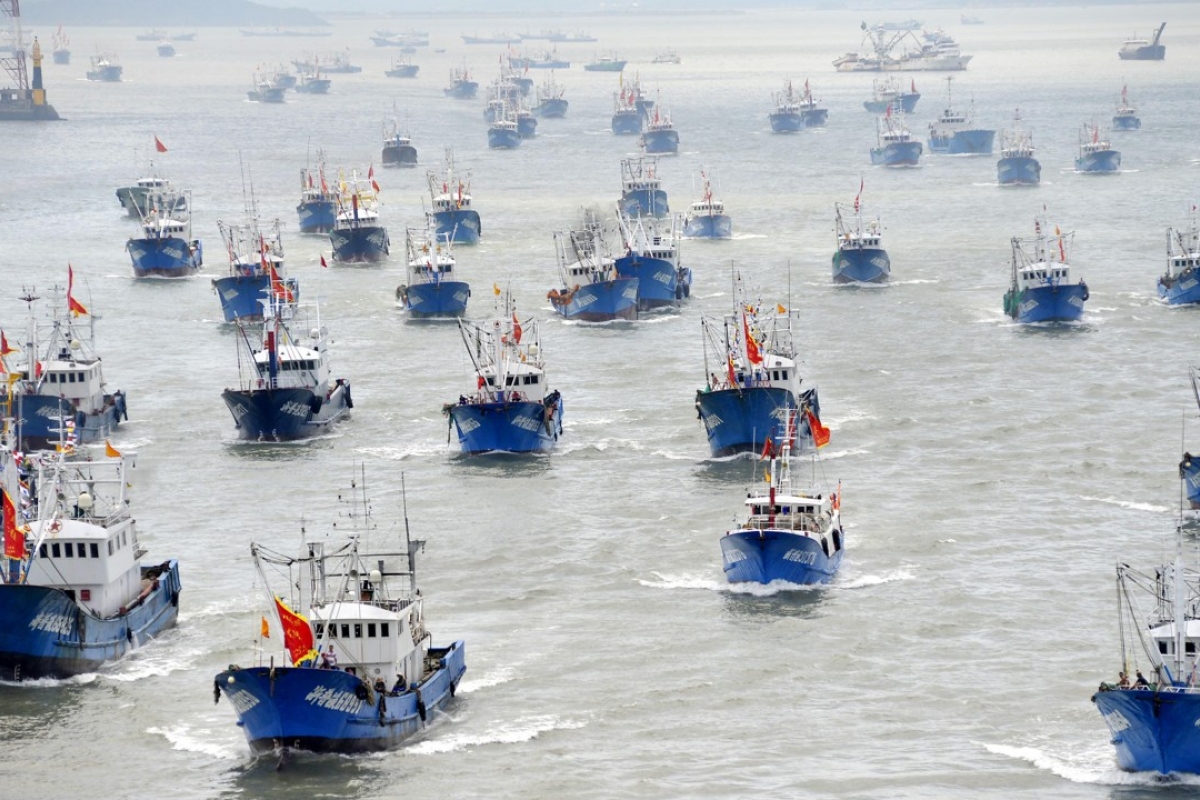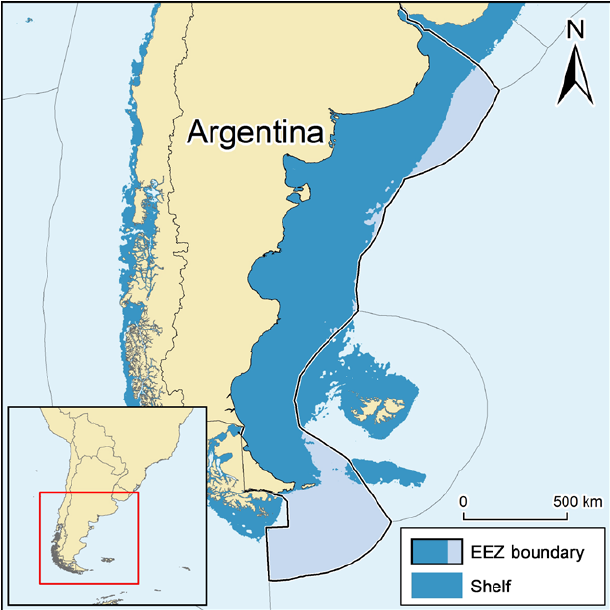RIO DE JANEIRO, BRAZIL – The gigantic Chinese fishing fleet, whose activity has raised concerns in the region due to its illegal and indiscriminate exploitation practices of marine resources, has crossed from the Pacific Ocean to the South Atlantic and triggered concerns among Argentine authorities due to its closeness to the country’s exclusive economic zone, as reported by the specialized press in Brazil in recent hours.
Given the threat to natural resources in its Exclusive Economic Zone, the Argentine Armed Forces have deployed naval and air units to reinforce controls on its waters.

According to Infobae, there are some 200 ships with Chinese flags sailing off the 200 mile limit of the Exclusive Economic Zone after crossing the Strait of Magellan from the Pacific Ocean, where they sailed along the coasts of Ecuador, Peru and Chile.
Among the vessels there are said to be eight for supply and a dozen for overall support, which remain in pre-established positions away from the operation area of fishing vessels, which have been moving around the region for months engaged in the fishing of squid to meet the virtually endless needs of the Chinese market.
In this context, where an excessive fishing scenario could result in an ecological disaster, as has occurred in the past years, the Argentine Ministry of Defense, through the Joint Chiefs of Staff, is setting up a marine surveillance force that includes the Navy and intends to coordinate activities with the Argentine Naval Prefecture.
By combining the number of available officers – boarding Prefecture vessels with Navy units and vice versa – it would substantially increase the number of officers on patrol.
Among the ships used, the oceanic patrol vessel ARA “Bouchard” stands out, which reached the South American country in February this year. It is the first of four such ships purchased by the Navy (the other three are under construction, with plans to arrive in 2021, 2022 and 2023). Furthermore, there are several Prefecture and Navy aircraft monitoring the fleet’s movements and behavior.
Observers warn that fines on illegal fishing have been increased in Argentina, but the activity continues to be considered an infraction, not a crime; consequently, Chinese fishing vessels can not be punished, and Argentina’s policy is not to attack ships. Authorities are limited to firing warning shots and only if a vessel escapes can it be prosecuted for resisting authority.
The activities of Chinese fishing boats are taking place worldwide. In total there are 17,000 of them sailing in search of natural resources. On July 16th, the Ecuadorian Navy issued an alert declaring that a foreign fleet of some 260 ships had anchored directly off its exclusive economic zone (EEZ) around the Galapagos Islands, which is a World Heritage Site and features one of the world’s richest ecosystems in terms of biodiversity. After depleting squid fishing season in that territory, the vessels repeated this pattern in Peruvian and Chilean waters, which also observed the depredation without being able to prevent it.

The Chinese market’s demand for these mollusks is so high that many analysts believe that the next few years could also see the appearance of military vessels performing functions of assistance or protection to fishing boats.
And the conditions inside these vessels have been described as “near-slavery”, by a Chilean worker who spent two years aboard one. The Chilean disclosed that one day he wanted to escape after landing and was denied his documents. “If some Chinese didn’t work, they were beaten”, he said in a statement to Bio Bio radio.
Olivares pointed out that the Chinese ships lack any kind of control because they belong to the Chinese state. “They are forced to work day and night, as the satellite sends data on water temperature 24/7.”

